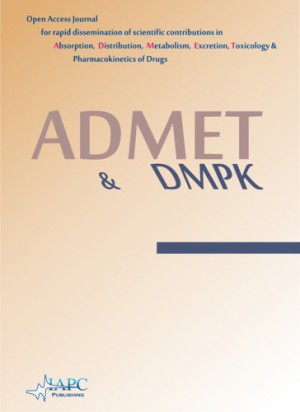
ADMET & DMPK
Yazarlar: Hong Wan
Konular:-
DOI:10.5599/admet.1.3.9
Anahtar Kelimeler:DMPK,PK,Toxicity,Safety,Screening cascade,Metabolite,Drug-drug interaction,Investigational new drug
Özet: The pharmaceutical industry has been evolving in recent years, which made numerous CROs and biotech companies conducting drug discovery and development programs and services in China. As a very comprehensive and important technology platform bridging efficacy and safety, the DMPK has become a mature discovery function to optimise ADME properties in drug design and screening, and dramatically mitgate attrition rates during the last decades. In this article, the author addresses several frequent questions associated with ADME/DMPK studies, e.g., what ADME tests should be conducted for preclinical studies? What should a typical investigational new drug (IND) enabling package cover? Which ADME/DMPK studies require good laboratory practice (GLP) or non-GLP? What does a good PK profile look like? The author presents a straightforward overview of these basic questions from his many years’ experience in both pharmaceutical research and CRO in supporting drug discovery projects and IND filing.